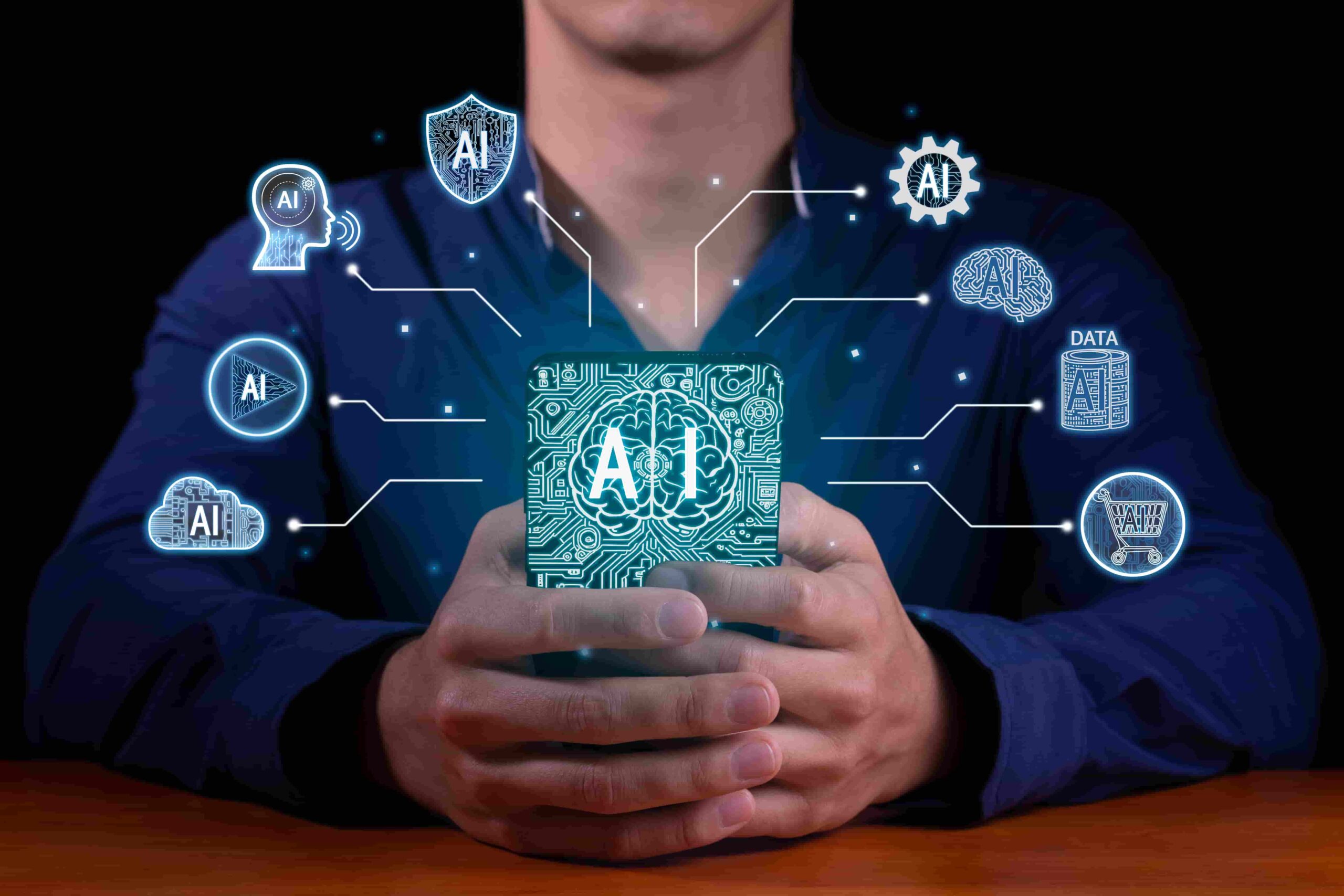Artificial intelligence, machine learning, 5G connectivity, cloud computing, and blockchain are the key technology trends shaping the next generation of business apps. These innovations are not only enhancing performance but also redefining how businesses engage with customers, streamline operations, and secure digital interactions. As organizations compete in a technology-driven marketplace, staying ahead of these trends is no longer optional it’s essential for growth and survival.
Artificial Intelligence and Machine Learning Lead the Wa
AI and machine learning are at the forefront of modern business app development. These technologies enable apps to process massive datasets, recognize patterns, and make intelligent decisions. From personalized recommendations in retail apps to predictive analytics in financial services, AI is transforming customer engagement. Machine learning algorithms improve continuously, allowing applications to evolve with user behavior and deliver increasingly relevant insights. Businesses adopting these tools can create smarter, more adaptive apps that foster long-term customer loyalty.
Cloud Computing and Scalability
Cloud technology has become a foundation for building and scaling business apps. Unlike traditional hosting, cloud platforms allow businesses to deploy applications faster, manage resources efficiently, and reduce infrastructure costs. For developers, cloud-based solutions also simplify collaboration across teams and regions. Scalability is one of the biggest advantages; apps can handle sudden surges in traffic without performance loss. By combining cloud computing with AI and automation, companies can achieve greater flexibility while ensuring users enjoy seamless app experiences.
5G Connectivity Driving Real-Time Experiences
The rollout of 5G networks is revolutionizing mobile app development. With faster speeds, ultra-low latency, and enhanced reliability, 5G enables apps to deliver real-time performance. Industries like healthcare, gaming, and logistics stand to benefit significantly. For example, telemedicine apps can provide smoother video consultations, while real-time tracking in logistics becomes more accurate. Businesses looking for an app developing company are increasingly prioritizing 5G integration to ensure their apps remain future-ready. As this technology expands globally, its impact on app performance will only grow stronger.
Blockchain Enhancing Trust and Security
Security has become a central concern in digital interactions, and blockchain technology provides a robust solution. By decentralizing data storage and enabling transparent, tamper-proof transactions, blockchain ensures trust in business apps. This trend is particularly important in finance, healthcare, and supply chain management, where sensitive data requires high levels of security. Moreover, blockchain is not limited to cryptocurrency; it is being used for secure contracts, digital identity verification, and fraud prevention. Businesses incorporating blockchain into their apps build credibility and safeguard customer trust.
IoT Integration with Business Applications
The Internet of Things (IoT) is connecting devices and creating intelligent networks that enhance business operations. In retail, IoT-powered apps can track inventory in real-time, while in manufacturing, sensors provide predictive maintenance alerts. IoT integration extends to wearables, where businesses are exploring opportunities to collect user data and deliver personalized experiences. Partnering with an iOS development agency allows companies to design apps that seamlessly integrate with IoT ecosystems and provide cross-platform compatibility. The synergy between IoT and app development is set to reshape industries across the globe.
Voice Interfaces and Conversational AI
Voice technology is quickly becoming a standard feature in business apps. Powered by AI, conversational interfaces improve accessibility and reduce friction for users. Virtual assistants, chatbots, and voice-enabled search functions are examples of how businesses leverage this trend. These tools not only enhance customer support but also streamline internal operations by automating repetitive tasks. As natural language processing becomes more advanced, voice technology will evolve into a powerful driver of user engagement in business apps.
Augmented Reality and Immersive Experiences
Augmented reality (AR) is no longer confined to entertainment; it is being integrated into business applications. Retailers use AR to allow customers to visualize products in real-world settings before purchase. Real estate apps use AR to provide immersive property tours, while education apps enhance learning with interactive content. These immersive experiences make apps more engaging and help businesses stand out in competitive markets. The continued growth of AR development platforms means businesses of all sizes can leverage this trend.
Cybersecurity Powered by AI
As cyber threats grow in sophistication, businesses must prioritize security in app design. AI-driven cybersecurity solutions are becoming integral in detecting anomalies, preventing fraud, and protecting sensitive data. Unlike traditional security systems, AI-powered defenses adapt in real time to evolving threats. Businesses are embedding these features directly into their applications, ensuring that users trust their digital experiences. The future of app security lies in proactive measures, with AI serving as the central driver of intelligent protection.
Data-Driven Decision-Making
Another major trend shaping business apps is the increasing reliance on data-driven insights. Modern apps collect and analyze user data to deliver actionable intelligence for businesses. Decision-makers can use this information to identify market opportunities, improve services, and refine customer experiences. As data analytics tools become more advanced, apps will serve as powerful engines for strategy and innovation. Businesses that fail to leverage data risk falling behind competitors who prioritize analytics in app development.
The Road Ahead for Business Apps
The convergence of AI, 5G, blockchain, cloud computing, IoT, and AR marks a new era of business applications. These trends are not only shaping how apps function but also redefining the role apps play in modern business strategy. Companies that adapt quickly will gain a competitive advantage, while those that hesitate risk losing relevance. The next generation of business apps will be smarter, faster, more secure, and more immersive than ever before, driving growth in every industry.
Conclusion
Technology trends are redefining the way business apps are built and experienced. Artificial intelligence, 5G, cloud platforms, blockchain, IoT, and immersive technologies are at the forefront of this transformation. Businesses must embrace these innovations to create apps that are secure, personalized, and future-ready. By adopting these trends, organizations can unlock new opportunities for growth and strengthen their position in an increasingly digital world. The future of business apps will be defined by adaptability, intelligence, and the seamless integration of cutting-edge technologies.

